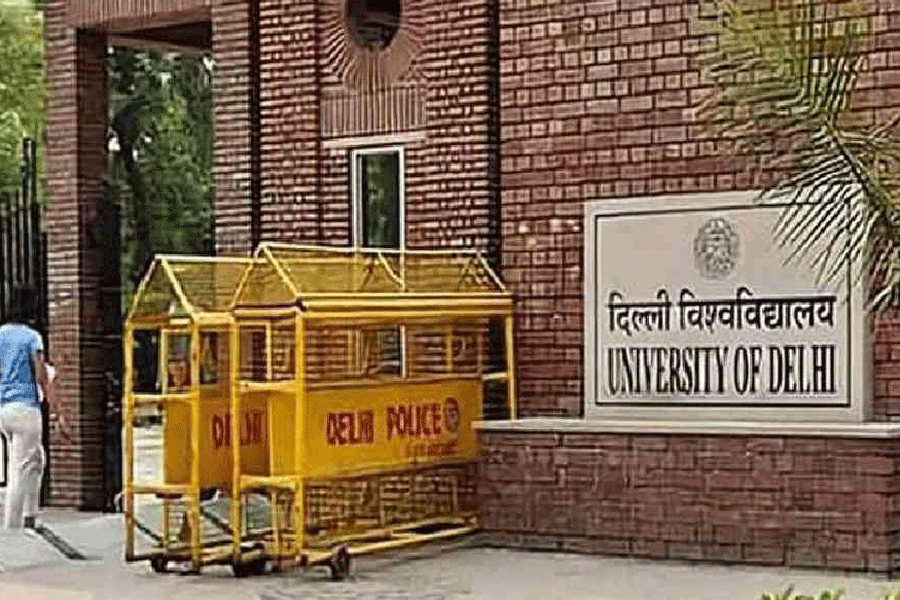Delhi University's English department raises tuition fee for PhD students more than eightfold


The English department at Delhi University has raised the tuition fee for PhD students more than eightfold in one go.
Worried students and teachers are blaming government policy, marked by a tightening of education pursestrings and the replacement of grants with loans for infrastructure creation on campuses.
The PhD students of English, who paid Rs 1,932 last year, were first asked to pay Rs 23,968 — a twelve-fold hike — this year before the sum was lowered to Rs 17,118 on November 7 following student protests. The protests are continuing.
Abha Dev Habib, a former member of Delhi University’s (DU) executive council, expressed apprehension that other departments too may now raise the fees for their PhD students. While the undergraduate and postgraduate fees are decided at the university level, the PhD tuition fees are fixed by the individual departments.
Rajesh Jha, a faculty member with Rajdhani College, blamed government policy for university fee hikes.
He cited how the NDA government had set up a Higher Education Funding Agency (HEFA) in 2018 to provide loans, in place of grants, to public universities for infrastructure creation.
This put a financial burden on the institutions, which needed to repay the loans in 10 years, encouraging them to raise their own money by hiking fees, among other measures.
DU has over the past five years taken loans amounting to more than Rs 1,000 crore from the HEFA.
Data obtained by The Telegraph last year through an RTI application showed that the total loans sanctioned by the HEFA for the central universities, IITs and the NITs stood at Rs 19,438.91 crore.
“Student fees are the main source of revenue generation for India’s public universities. Delhi University has quietly increased the fee for PhD students of English without even discussing the issue in appropriate forums like the finance committee and the executive council,” Jha said.
He said the university was also charging a new fee for the “Economically Weaker Section Support Fund”. Every student has to pay Rs 150 annually towards this.
“The government had itself brought in the 10 per cent EWS reservation, so it should have borne the cost for the required infrastructure. But this is being passed on to the students,” Jha said.